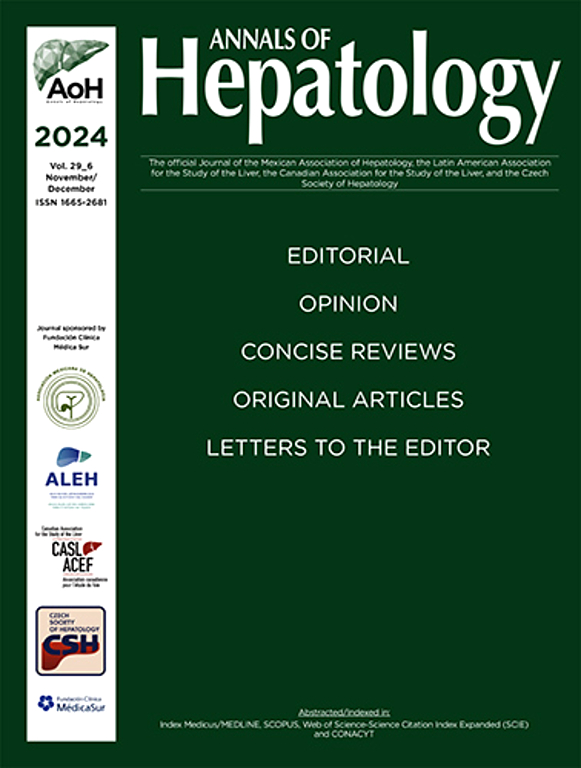在体内和体外实验中,果糖诱导的代谢重编程促进了肝癌细胞治疗的失败。
IF 3.7
3区 医学
Q2 GASTROENTEROLOGY & HEPATOLOGY
引用次数: 0
摘要
代谢重编程是癌细胞的一个特征。肝癌细胞中的果糖代谢减少,以抵消果糖诱导的氧化环境。酮己糖激酶(KHK) A过度表达,它的转换给癌细胞带来了优势。目的是研究果糖代谢对肝癌细胞侵袭性的影响。采用qRT-PCR检测Huh-7和HepG2细胞中材料和PatientsKHK亚型的表达。在高糖DMEM培养基(11mM)中,用果糖(1mM)处理肝癌细胞(Huh-7和HepG2) 48小时,使用Mito Fuel Flex法和使用SeaHorse技术的糖酵解速率法研究其代谢特性。为了证明果糖代谢增强侵袭性的假设,我们进行了增殖和酶分析。使用先前用果糖(1mM)处理72小时的Huh-7细胞进行化学耐药试验(体外和体内)。然后,我们将果糖(1mM)、顺铂(CDDP, 22,11µM用于体外实验或100µM用于体内实验)或果糖(1mM) + CDDP(22,11µM用于体外实验或100µM用于体内实验)放置48小时。结果与HepG2细胞相比,shuh -7细胞表达更高水平的khk-a。在Huh-7细胞中,这种异构体开关与改善果糖摄取和更高的增殖有关。我们没有检测到线粒体葡萄糖或脂肪酸氧化能力的差异,但在Huh-7中谷氨酰胺氧化能力较低,表明该细胞系对谷氨酰胺途径的总体依赖性。然而,我们只检测到果糖处理的肝癌细胞对脂肪酸氧化依赖程度较低的差异,这表明果糖代谢对细胞的分化水平有不同的影响。接下来,我们评估了侵袭性细胞系(Huh-7)中的糖酵解途径,分析表明,果糖处理的细胞对培养基酸化的贡献较小,表明果糖激活了其他途径。戊糖磷酸途径受到果糖的影响,抑制谷胱甘肽还原酶抵消了所获得的益处。然后,我们评估了CDDP治疗的存活率,发现在体外和体内,果糖治疗都改善了CDDP治疗的存活率和耐药性。结论果糖促进代谢重塑,导致肝癌细胞持续增殖。具体来说,果糖代谢促进了HCC细胞侵袭性的替代代谢途径。此外,果糖可能会增加癌细胞的存活和治疗失败。本文章由计算机程序翻译,如有差异,请以英文原文为准。
Metabolic reprogramming induced by fructose promotes therapy´s failure in liver cancer cells in vitro and in vivo.
Introduction and Objectives
Metabolic reprogramming is a hallmark of cancer cells. Fructose metabolism is decreased in liver cancer cells to counteract the oxidative environment induced by fructose. Ketohexokinase (KHK) A is overexpressed, and its switch confers advantages to cancer cells. The objective was to investigate the effect of fructose metabolism on the aggressiveness of liver cancer cells.
Materials and Patients
KHK isoform expression was measured by qRT-PCR in Huh-7 and HepG2 cells. Metabolic characteristics of liver cancer cells (Huh-7 and HepG2) treated with a fructose (1mM) for 48h in a high glucose DMEM media (11mM) was developed using Mito Fuel Flex assay and Glycolysis Rate Assay using SeaHorse technology. To prove the hypothesis that fructose metabolism enhances aggressiveness, we performed proliferation and enzymatic assays. Chemoresistance assays (in vitro and in vivo) was developed using Huh-7 cells previously treated with Fructose (1mM) for 72h. Then, we applied Fructose (1mM), Cisplatin (CDDP, 22,11µM for in vitro assays or 100µM for in vivo assays) or Fructose (1mM) + CDDP (22,11µM for in vitro or 100µM for in vivo) for 48h.
Results
Huh-7 cells expressed higher levels of khk-a compared to HepG2 cells. The isoform switch was associated with improved fructose uptake and higher proliferation in Huh-7 cells. We did not detect differences in mitochondrial glucose or fatty acid oxidation capacity, but glutamine oxidation capacity was lower in Huh-7, indicating the overall dependence of this cell line on the glutamine pathway. However, we only detected differences with fructose-treated (Fru-treated) cells with less dependence on fatty acid oxidation in hepatoma cells, suggesting that fructose metabolism has a different effect with respect to the differentiation level of the cells. Next, we evaluated the glycolytic pathway in the aggressive cell line (Huh-7), and the analysis showed that Fru-treated cells contributed less to media acidification, suggesting the activation of alternative pathways by fructose. The pentose phosphate pathway was affected by fructose and inhibition of glutathione reductase abolished the benefits gained. We then assessed survival to CDDP treatment, and found that both, in vitro and in vivo, fructose treatment improved survival and resistance to CDDP therapy.
Conclusions
Fructose promotes a metabolic remodeling leading to the sustained proliferation of liver cancer cells. Specifically, fructose metabolism promotes alternative metabolic pathways that contribute to the aggressiveness of HCC cells. In addition, fructose may increase cancer cell survival and the treatment failure.
求助全文
通过发布文献求助,成功后即可免费获取论文全文。
去求助
来源期刊

Annals of hepatology
医学-胃肠肝病学
CiteScore
7.90
自引率
2.60%
发文量
183
审稿时长
4-8 weeks
期刊介绍:
Annals of Hepatology publishes original research on the biology and diseases of the liver in both humans and experimental models. Contributions may be submitted as regular articles. The journal also publishes concise reviews of both basic and clinical topics.
 求助内容:
求助内容: 应助结果提醒方式:
应助结果提醒方式:


